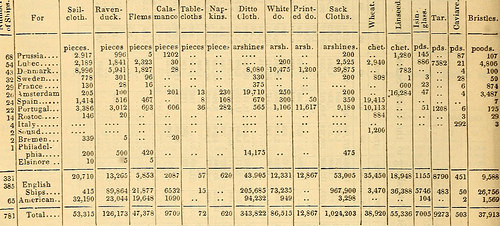Due to the terror threats of recent years, there have been big changes to airport security which have had a large impact on passengers and their baggage. With the establishment of new regulations and increased security checks, individuals are now not the only people having to contend with these changes, as the USA Transport Security Administration (TSA) introduces new security standards which every company must comply.
The TSA Air Cargo face an array of security issues, predominantly being:
The threat of an explosive device being activated on a passenger aircraft
The danger of a stowaway gaining access to an aircraft
In order to reduce and eradicate these risks, transportation and shipping companies are vetted, with their cargo being screened by air carriers, with random and targeted secondary screening being used to identify high-risk cargo. New legislation has been implemented by the TSA to increase the security of this system.
In order to eliminate these risks, shipping and transportation companies are strictly vetted, with their cargo being screened by air carriers, and also implementing random and targeted secondary screening to identify high-risk cargo. However, due to increasing threat levels the TSA has implemented new legislation to increase the security of this system.
Since August 2010 the new legislation now requires 100% of outbound cargo that is shipped by passenger aircraft to be screened against explosive devices; the same level of security that passenger checked baggage must undergo.
This involves the screening of individual pieces of cargo before they are loaded onto passenger aircraft. To this end, the Certified Cargo Screening Program (CCSP) is certifying certain facilities to be responsible for this screening and to maintain a level of security throughout the process which complies with TSA standards.
The two factors which help create and maintain this security are implementing a strict supply chain of custody, and the use of tamper proof technologies such as security tape.
Immediately after screening, the approved facility (or CCSF) must use TSA compliant tamper proof security tape, to seal the cargo at piece level. This kind of security tape leaves an obvious residue on the box if the tape is removed, which identifies it as screened and shows evidence of any attempt to tamper with the package.
After application of such materials, the box is sent to the next stage of the process with a certificate proving that it has been screened and is from a TSA-recognised CCSF. The box progresses to the next point in this chain of custody under close supervision to ensure that the cargo is accounted for and the security tape is not broken from the point of screening until the moment the plane leaves the ground.
For more information on Security Tape and air cargo legislation please visit: http://www.labellock.com/tamper-proof-security-sealing-tape.php




